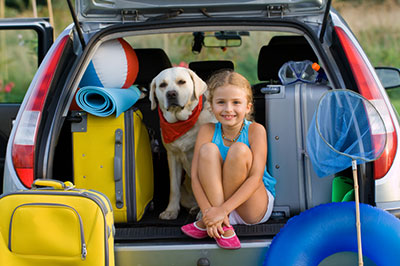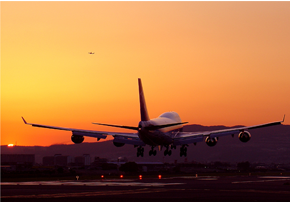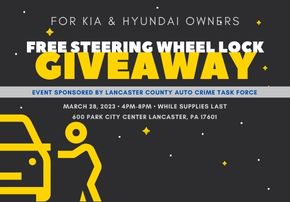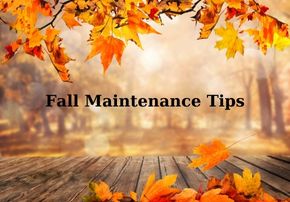THURSDAY, JUNE 1, 2023
 School bells have rung for the last time, summer is upon us and many Pennsylvania families are turning their thoughts to family vacations. Here are some frequent questions we get each year from families looking to rent a car on vacation. School bells have rung for the last time, summer is upon us and many Pennsylvania families are turning their thoughts to family vacations. Here are some frequent questions we get each year from families looking to rent a car on vacation.
Q: I'm going on vacation and plan to rent a car. I've been told my personal auto policy will cover the rental vehicle. Is this true?
A: The majority of auto insurance companies will extend coverage from your personal auto policy to a rental vehicle. With most policies, coverage pays for actual repairs to the rental car, but you remain responsible for your policy deductible. In addition, the rental agreement often makes you responsible for "additional" items, and that’s where many issues can arise.
NOTE: If your personal auto policy does not include physical damage coverage, the rental car will not be covered if it's damaged. In addition, if you rent a car outside of the United States, coverage may not be extended.
Q: I've also heard that if I use my credit card to pay for the rental vehicle, the rental vehicle will be covered. Is this true?
A: Many, but not all, credit card companies offer rental insurance, and will pay for damage to a rental car if you pay for the rental vehicle with that card. However, the coverage will be secondary to your personal auto policy. In other words, your credit card company may pick up certain things that your personal auto policy does not cover, such as your deductible. It is best to check with your specific credit card company to see what coverage may be provided.
Q: If my personal auto policy covers my rental car, and if my credit card covers my deductible, doesn't this mean I'm fully covered?
A: While your personal auto policy and use of a credit card may provide adequate coverage, they frequently fall short.
The rental car company may come after you to pay certain fees such as towing, loss of use (the period the rental car is out of service for repairs), diminished value (wrecked and repaired cars are viewed as less valuable than undamaged, factory originals) and administrative fees. All of these fees may be tacked on by the rental car company in the event of an accident, and all of which you can be held liable for. By signing the rental agreement, the renter is always responsible for any loss or damage to a rental vehicle, regardless of who is at fault.
Q: Would it be wise to purchase the "extra insurance" offered by the rental car company?
A: A loss damage waiver (LDW), sometimes called a collision damage waiver, purchased from a rental car company essentially takes the place of your own collision and comprehensive insurance, letting you and your insurance company off the hook if you wreck the rental car, or if it's stolen or vandalized. In exchange for purchasing the LDW, the rental company agrees to "waive" claims against you for damages in the event of an accident. But, your LDW coverage could become void if the accident was caused because you were speeding, driving under the influence, or the accident was the result of a reckless act or error on your part.
Before renting, familiarize yourself with your insurance options by:
* Contacting a Rutt Insurance agent and finding out if you have enough coverage under your existing policy; and
* Contacting your credit card company to find out if it offers rental car coverage, and what the restrictions and limitations may be.
If the two coverage methods mentioned above seem inadequate for your needs, you may wish to consider the purchase of a LDW.
Q: Are there any other options?
A. Because of the prohibitive cost of purchasing Loss Damage Waivers from rental car companies, many people choose to forego the purchase and take the risk of being hit with fees. Realizing the need for a more affordable solution some companies specializing in travel insurance have begun offering Rental Car Insurance. Companies such as Allianz Global Assistance, are now offering a more affordable alternative to the Loss Damage Waivers offered by many rental car companies.
Q: What should I do?
A: Making such a personal decision about your options is yours - and yours alone under the law. As your independent insurance agent, we will do our best to help explain your options. Our agency's job is to help provide you with information on these choices so you can make the best informed decision for you and your family.
MONDAY, MAY 1, 2023
 Many of us enjoy traveling away from home throughout the year, whether it's for an annual vacation, an upcoming holiday, a honeymoon, or to see the family. Our trips can take us across the country or across the globe. Many of us enjoy traveling away from home throughout the year, whether it's for an annual vacation, an upcoming holiday, a honeymoon, or to see the family. Our trips can take us across the country or across the globe.
Your Homeowners policy covers your home and contents while you're away, but did you know the items you take with you are covered as well? They're covered anywhere in the world!
If your golf clubs are stolen, your luggage is lost, or you experience a hotel theft, your Homeowners policy may cover the loss. There is a policy deductible and limits to high value items like jewelry, cash, precious metals, and guns so be sure to reach out to our agents to find out what's covered, if you have enough coverage, and if you need to take additional action to receive coverage.
Your personal liability coverage limit also follows you around the world. Personal liability covers claims made against you for accidental bodily injury you cause to other people or property damage you cause to other property. If you unintentionally break a window or kitchen appliance in your rental home or accidentally hit someone with your golf ball while golfing, there is coverage on your Homeowners policy.
Whether you're traveling across town or across the Atlantic Ocean, your Homeowners insurance follows you there. Happy traveling!
Originally published by Goodville Mutual Casualty Company
Posted 10:50 AM
FRIDAY, MARCH 17, 2023
 The Northern Lancaster County Regional Police Department (NLCRPD) has reached out for assistance in spreading the word about an upcoming event they are hosting to help prevent the theft of Kia and Hyundai vehicles. The Northern Lancaster County Regional Police Department (NLCRPD) has reached out for assistance in spreading the word about an upcoming event they are hosting to help prevent the theft of Kia and Hyundai vehicles.
Tuesday, March 28, 2023 4pm - 8pm or while supplies last
600 Park City Center, Lancaster, PA 17601
Kia and Hyundai vehicles have been the target of a TikTok social media challenge, which has put a spotlight on the vehicles' lack of an immobilizer. The challenge shows TikTok viewers how to hot-wire Kia and Hyundai cars with a USB cord and a screwdriver. This has led to many vehicles being stolen and resulted in at least 14 reported crashes and eight fatalities countrywide. You can find more information from this CBS news article.
These car manufacturers are working on software updates for the vulnerable vehicles, but in the meantime, the NLCRPD is hosting an event to distribute 320 wheel locks free of charge to any Lancaster County KIA or Hyundai vehicle owner. The NLCRPD has asked if local agencies to share the information about this giveaway to our insureds.
Anyone desiring one of these free wheel locks need only to show some proof of ownership of a Kia or Hyundai vehicle such as the registration card or proof of insurance.
Questions can be directed to Officer Tod Neifert, Northern Lancaster County Regional Police Department at 717-664-5909 (Office), 717-733-0965 (Station), or NeifertT@nlcrpd.org.
Posted 1:47 PM
WEDNESDAY, FEBRUARY 1, 2023
 Security Tips for Remote Workers Security Tips for Remote Workers
As more employees work from home, basic security measures need to be taken to protect the individual and enterprise from cyber criminals who are taking advantage of lax telework security practices. The National Cyber Security Alliance offers these tips: Think Before You Click. Cyber criminals are taking advantage of people seeking information on COVID-19. They are distributing malware campaigns that impersonate organizations like WHO, CDC, and other reputable sources by asking you to click on links or download outbreak maps. Slow down. Don't click. Go directly to a reputable website to access the content.
Lock Down Your Login. Create long and unique passphrases for all accounts and use multi-factor authentication (MFA) wherever possible. MFA will fortify your online accounts by enabling the strongest authentication tools available, such as biometrics or a unique one-time code sent to your phone or mobile device.
Connect to a secure network and use a company-issued Virtual Private Network (VPN) to access any work accounts. Home routers should be updated to the most current software and secured with a lengthy, unique passphrase. Employees should not be connecting to public WiFi to access work accounts unless using a VPN.
Separate your network so your company devices are on their own WiFi network, and your personal devices are on their own. Keep devices with you at all times or stored in a secure location when not in use. Set auto log-out if you walk away from your computer and forget to log out.
Use company-approved/vetted devices and applications to collaborate and complete your tasks. Don't substitute your preferred tools with ones that have been vetted by the company's security team.
Update your software. Before connecting to your corporate network, be sure that all internet-connected devices ‒including PCs, smartphones and tablets ‒ are running the most current versions of software. Updates include important changes that improve the performance and security of your devices.
Source: staysafeonline.org
Posted 6:14 PM
SATURDAY, OCTOBER 1, 2022
 Home Maintenance Tips This Fall Home Maintenance Tips This Fall
Before the weather grows colder it’s important to prepare for the winter months to prevent costly damage.
Below are the Fall preventative home maintenance steps that every homeowner should follow.
Gutters and Downspouts
Clean gutters and downspouts frequently throughout fall to prevent build up of leaves and other debris. Neglected gutters can lead to wood rot problems and pest infestations, not to mention ruined gutters.
Be sure water is not coming down behind gutters and that all support brackets are securely in place.
Ensure that water drains properly and doesn’t pool. Pooling can cause damage to foundations, driveways, and walkways.
Heating Systems
Replace the filter in your furnace.
Consider having a heating professional check your heating system to ensure optimal performance and discover minor problems before they turn into costly major repairs.
Clean your ducts to better your heating system’s efficiency as well as to reduce household dust and to provide relief to those with respiratory problems.
Plumbing
To prevent pipes freezing and bursting, ensure that the pipes are well insulated.
Know how to locate and turn off the water shut-off valve in case pipes do freeze.
Posted 6:00 PM
|
Blog Archive
2025
2024
2023
2022
2020
2019
2018
2017
2016
|